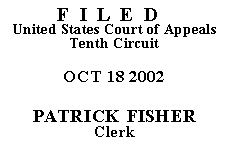

| UNITED STATES OF AMERICA,
v.
IVAN BARRERA |
D.C. No. CR-00-1326-LH (D. New Mexico) |
A federal grand jury indicted Defendant Ivan Barrera on a charge of possession with intent to distribute more than 500 grams of methamphetamine, in violation of 21 U.S.C. §§ 841 (a)(1) and (b)(1)(A). In accordance with a written agreement, Barrera pleaded guilty. Thereafter, the district court held a sentencing hearing at which Barrera sought a reduction in sentence based on the "safety valve" in 18 U.S.C. § 3553(f) and U.S.S.G. § 5C1.2, which allows a defendant to avoid imposition of a mandatory minimum sentence if he meets five statutory criteria. Id. The district court determined that Barrera did not meet those criteria and imposed the mandatory minimum sentence of 120 months. Barrera now appeals the district court's failure to reduce his sentence based on the safety valve. Because we conclude that Barrera waived his right to appeal his sentence when he entered into his written plea agreement, we dismiss the appeal.
On June 18, 2001, Barrera signed a written plea agreement under which he waived his right to appeal his sentence. Paragraph 10 of the Plea Agreement states:
10. The defendant is aware that Title 18, United States Code, Section 3742 affords a defendant the right to appeal the sentence imposed.
a. Acknowledging that, the defendant knowingly waives the right to appeal any sentence within the guideline range applicable to the statute of conviction as determined by the court after resolution of any objections by either party to the presentence report to be prepared in this case, and the defendant specifically agrees not to appeal the determination of the court in resolving any contested sentencing factor. In other words, the defendant waives the right to appeal the sentence imposed in this case except to the extent, if any, that the court may depart upwards from the applicable sentencing guideline range as determined by the court.
R., Vol. I, Doc. 24, Plea Agreement at 5 (emphasis added).
When the district court took Barrera's plea on the same date, it ensured that Barrera knew he was waiving his right to appeal his sentence. The following colloquy took place:
THE COURT: Do you understand that the Court will not be able to determine the guideline sentence for your case until after a presentence report has been prepared and both you and the Government have had an opportunity to object to the findings of the probation officer and the application of the guidelines, and further, that any estimate of sentence that your attorney may have given to you may be different than the sentence that is imposed?
THE DEFENDANT: Yes.
. . . .
THE COURT: Do you also understand that by entering into the plea agreement and entering a plea of guilty, you will have waived or given up your right to appeal all or part of the sentence that is imposed?
THE DEFENDANT: Yes.
R., Vol. III, Transcript of Proceedings 6/18/01 at 6-7.
"This court will hold a defendant to the terms of a lawful plea agreement." United States v. Atterberry, 144 F.3d 1299, 1300 (10th Cir. 1998). "A defendant's knowing and voluntary waiver of the statutory right to appeal his sentence is generally enforceable." United States v. Hernandez, 134 F.3d 1435, 1437 (10th Cir. 1998). Both the written plea agreement and the colloquy make clear that Barrera knowingly and voluntarily waived his right to appeal his sentence. Moreover, Barrera offers no argument or evidence to rebut this seemingly obvious conclusion. Rather, Barrera neglects the waiver issue altogether and argues exclusively for relief based on the merits of his appeal.
In waiving his right to appeal his sentence, Barrera foreclosed the jurisdictional basis for such an appeal. See United States v. Rubio, 231 F.3d 709, 711 (10th Cir. 2000). ("[W]e would certainly overreach our jurisdiction to entertain this appeal when the plea agreement deprived Defendant of the right to appeal.") Accordingly, the appeal is DISMISSED.
Entered for the Court
Harris L Hartz
Circuit Judge
*.This order and judgment is not binding precedent, except under the doctrines of law of the case, res judicata, and collateral estoppel. The court generally disfavors the citation of orders and judgments; nevertheless, an order and judgment may be cited under the terms and conditions of 10th Cir. R. 36.3.